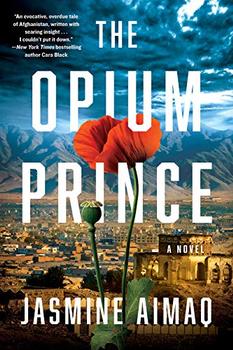Summary | Excerpt | Reviews | Beyond the Book | Readalikes | Genres & Themes | Author Bio

1
On that scalding August day, Sergeant Najib sat behind his desk, polishing the barrel of his gun. He liked being a sergeant, despite the fool of a constable they had given him and the discomfort of his starchy uniform in the heat. Outside, there was nothing but a two-lane highway and the beige, boundless desert dotted with the occasional grungy bush or approaching mass of a nomad migration. Najib was proud to be king of this solitary mud box perched on the Kabul-Kandahar highway. From his station, he proudly served the young republic, proving that it was a serious entity. So serious that there were outposts of law and order even in places where the only real laws were those of nature, and the only real orders those of a warlord. Najib had loyally served the king, too, before the coup that had sent him packing four years ago.
Slipping the gun into his holster as noisily as he could, Najib stroked the cover of his well-thumbed Koran, then cast a glance at his young underling. Najib liked to think that the boy was a dedicated servant. It was an accepted fact that Kochi nomads were up to all sorts of trickery, and soon he would catch one of them in the act of something expressly forbidden, like passing off tin as silver or riding mules loaded with the remains of harvested poppies in the hope of starting their own field.
The grumble of a car interrupted his daydreams about glorious arrests and impending promotions. The constable shuffled out of his seat, turning to him for a cue. Najib might have walked to the station's only window, a cutout in the wall split by three vertical bars, but he would see no car from there. What imbecile had placed the single lookout point facing the desert instead of the road? He stalked out of the station, the younger man on his heels. A sand-colored Mercedes was slowing down by the station. It dipped onto the shoulder of the road, kicking up dust before coming to a stop. Najib's eyes fell on the hazy veil of blood on the grille, the red-streaked hood, the spiderwebbed windshield. Inside the car was the strangest mix of folk. A stunning yellow-haired woman caught his eye first, then an urban type at the wheel and a cluster of Kochis in the back. It occurred to him that these might be the outlaws he had been waiting for.
He hooked his thumb into his holster and stood still. He would let them come to him. The driver stepped out. Above the man's right eye was a swollen, bloody gash. His shirt was stained, too. The blonde woman emerged, moving with a determination that reminded Najib of one of his wives. The last time this many people had turned up at once was when some hoodlums had organized a pack-beast race and a luckless camel had tried to outrun a big rig instead of the other animals, an unanticipated yet exciting twist that ended with the parched beast collapsing in a heap on the highway, making the asphalt look like it had grown a hump, and the terrified driver swerving off the road, his eighteen-wheeler belly-up like a giant bug. Luckily, there had been no deaths. Except a woman who had worn a chaderi, a blue burka, whose name no one knew and whose age no one could guess because they made sure she remained covered as she died.
Excerpted from The Opium Prince by Jasmine Aimaq. Copyright © 2020 by Jasmine Aimaq. Excerpted by permission of Soho Crime. All rights reserved. No part of this excerpt may be reproduced or reprinted without permission in writing from the publisher.




Poetry is like fish: if it's fresh, it's good; if it's stale, it's bad; and if you're not certain, try it on the ...
Click Here to find out who said this, as well as discovering other famous literary quotes!
Your guide toexceptional books
BookBrowse seeks out and recommends the best in contemporary fiction and nonfiction—books that not only engage and entertain but also deepen our understanding of ourselves and the world around us.